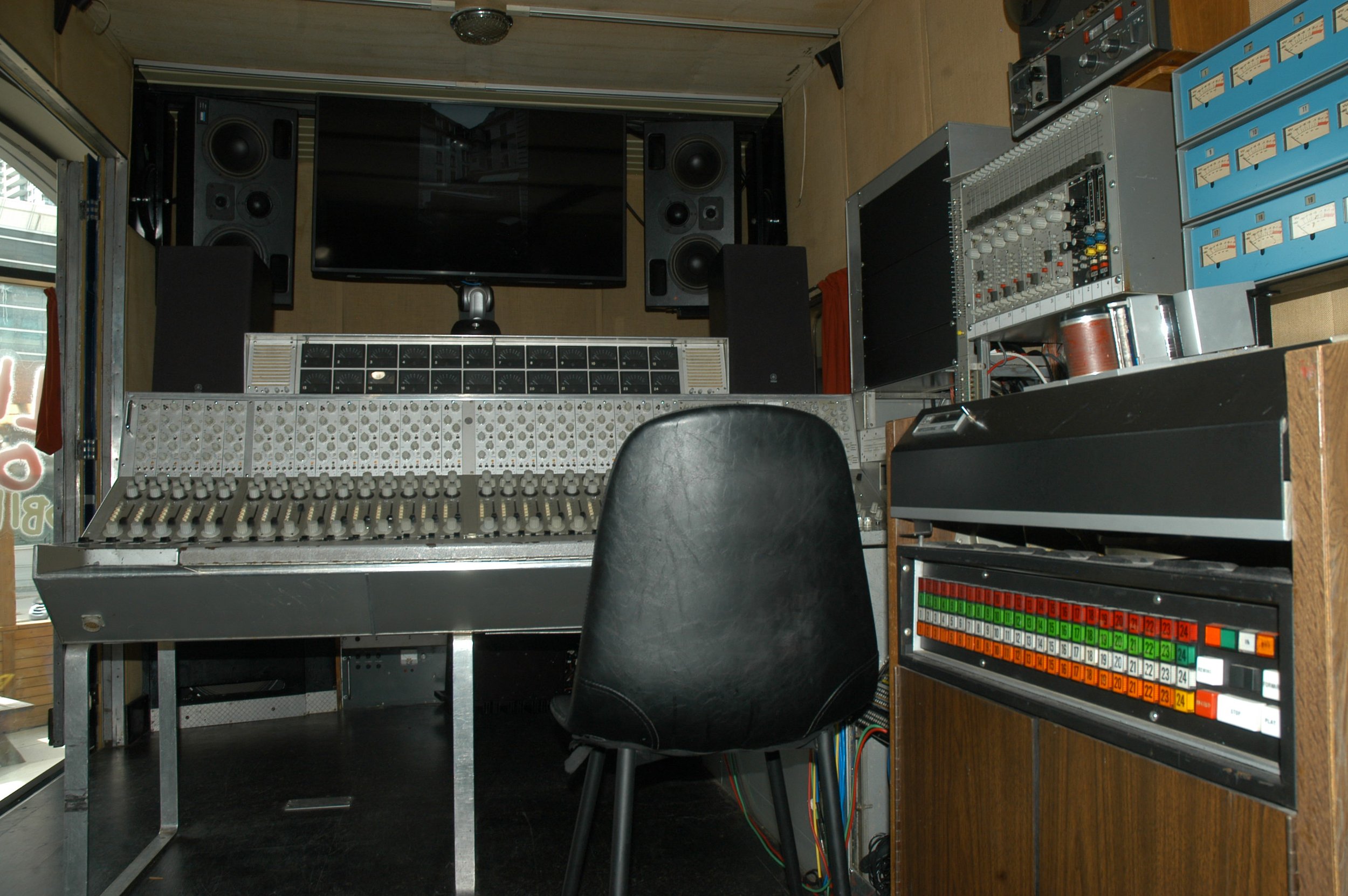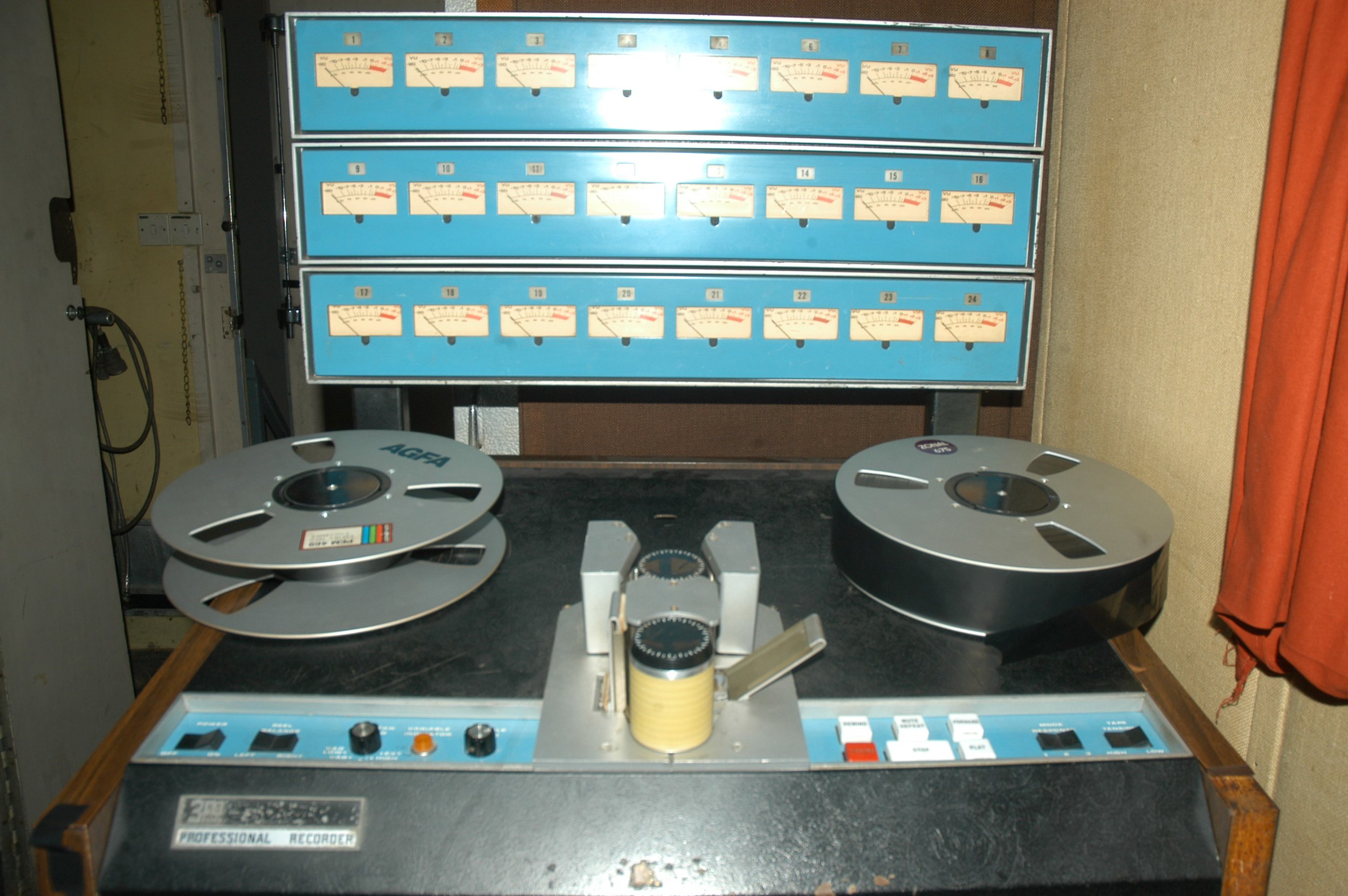by Dave Dormer
Reggae fans can get up close with a piece of music history right here in Calgary.
Housed at Studio Bell, home of the National Music Centre (and viewable inside the King Eddy pub) is the Rolling Stones Mobile Studio, which was used to record a number of Bob Marley concerts in the 1970s.
Those include two shows — on July 17 and 18, 1975 — at the famed Lyceum Theatre in London, England, which produced the album Live!, released in December of that same year.
“The story goes that (Island Records founder) Chris Blackwell went to the first night and it was so electric and amazing, he frantically called people to figure out how to record the show for the next two nights,” said Jason Tawkin, a studio and electronics engineer at Studio Bell. “And, that’s when the (Rolling Stones Mobile Studio) was contracted to come in and record those shows, and the rest is history.”
The studio was considered a technological marvel at the time. The first independent outfit in Britain was Olympic Studios, opened in the late 1950s, which became home to some of England’s biggest bands, and helped launch the British Invasion in the mid-1960s.
The interior of the Rolling Stones Mobile Studio.
Finding it harder and harder to get recording time at Olympic by the mid-60s, the Rolling Stones’ tour manager, Ian Stewart, came up with the idea of recreating the control panel in the back of a bus. So, rather than taking the band to the studio, he could take the studio to the band.
“It’s such a luxury. Now, everyone has a home recording studio but back then they didn’t exist,” said Tawkin.
“That’s kinda the vibe in here, spare no expense, everything is really expensive, custom made, one-of-a-kind. There was over $500,000 worth of microphones. They travelled with 80 microphones so they could capture anything that was happening. It was one of those things where this truck would roll up and capture moments in time.”
Decades later, the Rolling Stones Mobile Studio had been brought to North America and, in 2001, it ended up in Calgary,
The interior of the Rolling Stones Mobile Studio.
Marley was already famous in the mid-70s, but on that album is the seven-plus minute, live version of No Woman, No Cry, which cemented him as a global superstar.
“That version … more people recognize it than the actual studio version,” said Tawkin.
The original song, which has a quicker-tempo, was released on the 1974 album Natty Dread, and clocked in at three minutes and 46 seconds.
The master tapes from that show, and others by Bob Marley and the Wailers in the 1970s, were discovered in 2013 during renovation work at a northwest London hotel, in an area known as Little Venice.
Badly damaged by water and corrosion, the box of unmixed master tapes was originally tossed in a rubbish bin before someone noticed markings on the outside, which said “Bob Marley and the Wailers” and it was retrieved.
The box was given to Joe Gatt, himself a reggae fan, who enlisted a friend in the music business, Louis Hoover, to see if restoration would be possible.
Reel-to-reel equipment inside the Rolling Stones Mobile Studio.
The pair engaged sound technician Martin Nichols at White House Studios in London, who spent five years painstakingly restoring the tapes, which were to be put up for auction in 2019.
They were expected to fetch upward of $40,000 each, but just before the bidding was set to begin, Island-UGM, who own the recordings, reached out to ask that they be removed, so the two sides could negotiate.
Those talks continue today.
Exactly how the tapes ended up in the hotel basement for several decades has been lost to time.
One of the more popular, and frankly, likely theories, is that a member of the band Black Uhuru and a member of Marley’s entourage had the tapes with them.
After a night of drinking at the hotel bar, the pair offered to leave the tapes as collateral, as they didn’t have any money, never to return. There weren’t ATMs in those days, so it would be plausible the tapes would be left under the guise of having to go to the bank the next morning.
Along with the Lyceum shows, tapes found in the box included recordings of a concert at London’s Rainbow Theatre in 1977 and at the famed Pavilon Baltard, in Paris in 1978.
In a twist of fate, Gatt had been at one of the Lyceum shows in 1975, he told radio presenter Philip Chryssikos during an interview.
Marley died of cancer on May 11, 1981, at a hospital in Florida. He had been undergoing treatment in Germany and was travelling back to his home in Jamaica.



